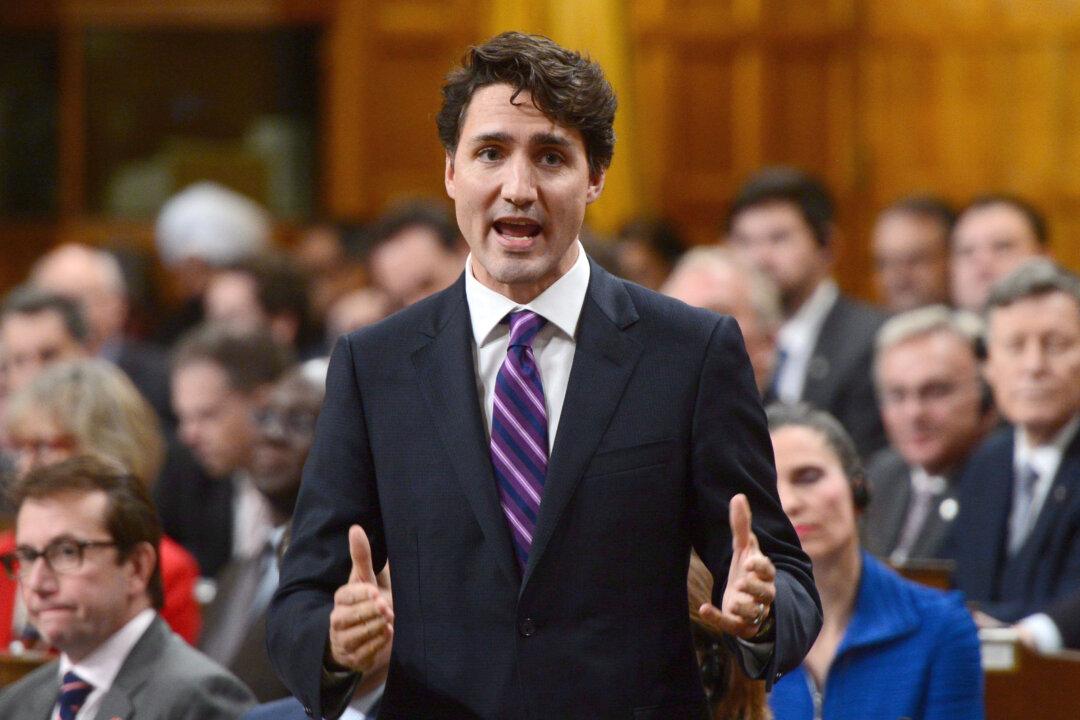Trudeau won’t be attending Castro’s funeral, says PMO
OTTAWA—Prime Minister Justin Trudeau’s office says he won’t be attending the funeral of the late Communist Cuban leader Fidel Castro, saying his schedule wouldn’t allow him to attend.
Instead, Trudeau dispatched Governor General David Johnston to attend a memorial service on Nov. 29 in Havana. Castro will be buried on Dec. 4 after a four-day funeral procession across the country.
Trudeau’s decision follows harsh criticism at home and abroad for a laudatory statement praising the dictator’s legacy. The statement expressed “deep sorrow” over Castro’s death without mentioning the human rights violations of his regime beyond referring vaguely to him as “a controversial figure.”
Trudeau defended his statement by saying he was trying to highlight the connections between Canada and Cuba.
The Opposition Conservatives took Trudeau to task Nov. 28 in the House of Commons, calling him naive and demanding that he apologize for trying to whitewash Castro’s past.
“The prime minister, instead of paying tribute to a dictator, should have offered condolences to the long-suffering oppressed people of Cuba,” said Tory MP Peter Kent.
Kinder Morgan asks pipeline expansion opponents to be ’respectful’
Kinder Morgan Canada president Ian Anderson is asking opponents of its Trans Mountain pipeline expansion to be “lawful and respectful” now that the project secured federal approval.
Anderson says he is confident the $6.8-billion development will be built starting next fall despite promises of protests, court challenges, and civil disobedience in British Columbia from environmentalists, indigenous groups, and community leaders.
But he also says the company will be prepared for opposition that could mirror protests at Burnaby Mountain last year that held up test drilling and resulted in more than 100 arrests.
Trump’s former campaign manager coming to Alberta in January
EDMONTON—A top adviser to U.S. president-elect Donald Trump is visiting Alberta in January.
Kellyanne Conway will speak at a private fundraising dinner hosted by the Alberta Prosperity Fund on Jan. 12 in Calgary, and also tour the oilsands.
Heather Forsythe, chair of the Alberta Prosperity Fund, says Conway’s visit sends a strong signal about the importance of Alberta and Canada to the incoming Trump administration.
Trump’s victory in November’s U.S. presidential election has revived hopes that the Keystone pipeline could be approved. The line would take Alberta crude to ports and refineries on the Gulf Coast in Texas.
Conway served as Trump’s campaign manager and is now an influential member of his transition team.
Foreign ownership of condos lower than year ago in big cities: CMHC
OTTAWA—A report by CMHC says foreign ownership of condominiums in some of Canada’s largest cities has dropped compared with last year.
Foreign ownership was the highest in Vancouver and Toronto at 2.2 percent and 2.3 percent, respectively. However, that was down from 3.5 percent in Vancouver and 3.3 percent in Toronto in 2015.
CMHC said the relatively higher shares in Vancouver and Toronto in 2015 were due to an unusually high proportion of foreign ownership in newly constructed condominiums.
Foreign ownership of condos in Montreal slipped to 1.1 percent from 1.3 percent a year ago.
Bitumen knowledge gaps too great to assess risk of ocean spill: Study
A study that looked at thousands of research papers has concluded that not enough is known about how bitumen behaves in the ocean to be able to assess the risk of shipping it.
The paper comes the day after the Trudeau government approved expansion of the Trans Mountain pipeline that would carry bitumen from Alberta’s oilsands to the West Coast.
Scientists combed though more than 9,000 papers to assess how much is known about how bitumen acts in marine ecosystems and how it might affect plants and animals that live there.
They found that even the most basic information on bitumen’s effects doesn’t exist, such as how toxic it is to different organisms. The study did find 15 different ways that shipping bitumen can affect the environment.
CFIA triples ‘high risk’ bovine TB farm list
OTTAWA—Federal officials say at least 10,000 cattle are going to slaughter as a result of a bovine tuberculosis outbreak in western Canada.
The Canadian Food Inspection Agency says the animals are considered “high risk” for contracting or transmitting the infectious disease, even though only six cattle have tested positive for bovine TB since the first case was confirmed in September.
The agency last week declared six properties among those considered as high risk for transmission but added 12 more farms to the expanding list on Nov. 29.
So far, quarantine orders have been issued at more than 40 cattle operations in southeast Alberta and southwest Saskatchewan, affecting more than 22,000 animals.
With files from The Canadian Press





